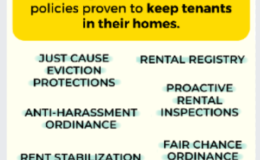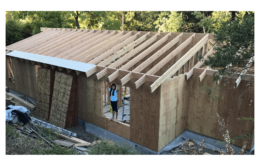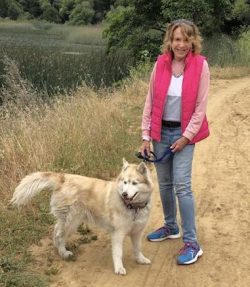The Right to a Smoke-Free Environment
- By : Jade Le
- Category : Community, Education, Housing, Public Safety
- Tags: Smoke-free

In Castro Valley, 27% of homes are considered multi-unit housing and are part of the 15,367 multi-unit housing homes in Unincorporated Alameda County that are at risk of being exposed to secondhand smoke. Castro Valley is part of Unincorporated Alameda County, where a resident’s best bet for living in a smoke-free environment is finding and affording to live on a smoke-free property. Here is what Castro Valley residents who live in multi-unit housing, such as apartments, duplexes, and condos, shared about their experience with secondhand smoke:
“I have a lung disease but have had to live around smokers all my life. As an adult with lung problems, I would love to just live in a place where I didn’t have to smell smoke for once in my life.”
“I have a few neighbors that smoke, and I can’t open the window at night, or sometimes during the day because of the smoke. My nose is sensitive and it gives me headaches, and I don’t want to risk [my health with] secondhand smoke.”
BASTA (Bay Area Strength Through Activism) is a youth- and adult-led initiative that has worked hard on engaging the community around the issue of secondhand smoke in their homes. These BASTA leaders represent Unincorporated Alameda County communities such as Castro Valley, Fairview, San Lorenzo, Ashland, Cherryland, and Hayward Acres. It is an honor to share that the BASTA youth coalition has a strong cohort of Castro Valley High School students that have led advocacy activities, including: developing an educational video series about the dangers of secondhand smoke, participating in media interviews to share their experience with secondhand smoke, and conducting educational visits with individual Municipal Advisory Council (MAC) members about how this issue affects their community.
Secondhand smoke may not seem like a pressing issue, but children and families have a higher risk of being exposed to it now due to COVID-19 and the shelter-in-place precautions. Increased time inside of multi-unit housing means increased frequency of people smoking in their units and increased distribution of secondhand smoke through electrical outlets, shared vents, plumbing, and more.
Additionally, unincorporated Alameda County faces some of the most egregious health disparities, with Cherryland and Ashland having the lowest life expectancy of any city/place in Alameda County. In 2020, Unincorporated Alameda County received a “D” grade for their tobacco control grade in smoke-free housing, while neighboring cities like Alameda, Berkeley, and Oakland all received a C or higher. Disparities like these cannot be ignored because they demonstrate that our communities need safer and healthier places to live in.
This is a conversation about the right to breathe clean air regardless of where people live, who they live next to, and how much money they make. Our families do not have the financial ability to simply move to areas where the health and safety of residents is prioritized, so families are forced to breathe secondhand smoke in their apartment units. Castro Valley residents who currently live on multi-unit housing properties believe in the importance of advocating for a community-wide change that will create smoke-free multi-unit housing for all. Sixty four (64) cities and jurisdictions in California have taken action to protect community members from secondhand smoke in their homes by adopting policies that prohibit smoking inside units and on multi-unit housing properties. A total of 17 cities in the Bay Area already have 100% smoke free multi-unit housing.
Strong and equitable smoke-free multi-unit housing laws can protect residents from exposure to secondhand indoor smoke, reduce smoke-triggered asthma attacks, promote decreased smoking among residents, and reduce smoking prevalence among young adults. There is no better time than now to act on protecting residents.
If you are interested in advocating for the protections of families and neighbors from secondhand smoke, we invite you to get involved with BASTA. You can start by signing our Statement of Concern, following us on social media (@bayareastrength on Instagram and Facebook), or getting in touch with us to share your story.
For more information about getting involved with BASTA, direct message @bayareastrength “I’m ready to voice my concerns” or contact Natalie Montes, our advocacy coordinator at 510.634.9708 or nmontes@lafamiliacounseling.org.


